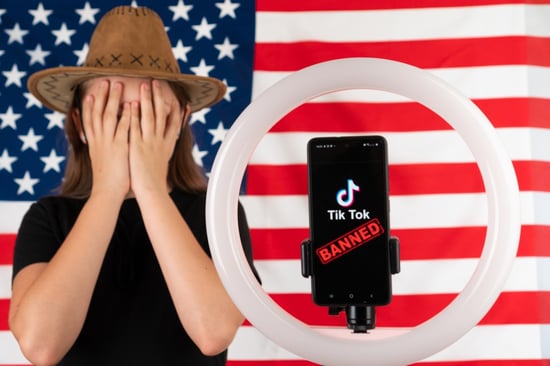How TIkTok Is Teaching Marketers the Importance of a Diverse Social Media Strategy
In 2019, TikTok was the second most popular free app downloaded on the App Store and Google Play—and that was before lockdown triggered an entirely new audience of people who were desperate for entertainment. It now has over 800 million active users worldwide, making it one of the most popular social media platforms in existence.
In case you’re not on the TIkTok bandwagon yet, you should know that it’s a video-based platform, with a mission “to capture and present the world’s creativity, knowledge, and precious life moments, directly from the mobile phone. TikTok enables everyone to be a creator, and encourages users to share their passion and creative expression through their videos.” Users can create completely original content, or follow trends by borrowing templates and sounds from other popular videos.
We know that when it comes to social media, video is king, which is why it shouldn’t be surprising that TikTok boasts the highest social media engagement rates per post. For this reason, it’s become one of the most popular platforms for influencer marketing, especially for those targeting Gen Z—TikTok enjoyed a massive 500% increase in in-app spending between May 2018 and April 2019, taking it to $7.4 billion, and that number has continued to increase.
 Unfortunately, companies who have chosen to heavily invest in TikTok marketing were thrown a curveball at the beginning of summer, when the federal government threatened to ban all Chinese social media apps, including TikTok, due to data security concerns. While rumors of an impending sale to a U.S. company are rampant (right now, Microsoft and Walmart seem to be the biggest contenders), marketers and TikTokers alike are left worried that the ban could be successful, which would lead to a huge loss in both money and followers.
Unfortunately, companies who have chosen to heavily invest in TikTok marketing were thrown a curveball at the beginning of summer, when the federal government threatened to ban all Chinese social media apps, including TikTok, due to data security concerns. While rumors of an impending sale to a U.S. company are rampant (right now, Microsoft and Walmart seem to be the biggest contenders), marketers and TikTokers alike are left worried that the ban could be successful, which would lead to a huge loss in both money and followers.
If you’re a company, e-commerce professional, content creator or other organization that relies heavily on TikTok for your marketing purposes, there’s a clear lesson to be learned: you need to diversify your social media strategy—and fast. In fact, that lesson is applicable if you’re solely focused on any single platform. After all, in today’s fast-paced digital culture, you never know when things will change overnight.
Creating a Social Media Strategy
If you read that last paragraph and immediately thought, “What social media strategy?” then creating one should be your first order of business. Taking the time to develop thoughtful, strategic content will give you so much more “bang for your buck” than throwing metaphorical content in every corner of the internet and hoping something sticks. Developing a social media strategy doesn’t have to be difficult, but if you’re completely unsure of where to start, it’s probably worth your time to read a book or two, or even invest in a consultant, before you get going. Hootsuite recommends gathering data about your audience and creating personas to help you narrow down your goals and decide where to invest your energy and money. From there, you should do a thorough social media audit to decide what’s working and what’s not before you begin strategically planning your content.
Expand Your Digital Reach
While it’s never ideal to have dozens of social media accounts that are barely used, it’s not a bad idea to snag usernames or handles on every possible platform, especially if those accounts can be deactivated or hidden when not in use. After all, the social media landscape is constantly changing, and it’s nearly impossible to predict which up-and-coming platform will be the next viral sensation.
Not sure if a social media network will be a good fit for your brand? When in doubt, test it out. Create an account on a new platform, research best practices and popular content, and do your best to replicate what’s working for others. You can even hold internal focus groups to help you decide whether your content is going to be successful. However, that doesn’t mean that you should post the same things on every channel. It’s important that you take the time to research what will work best and where and create platform-specific content wherever possible.
The best-case scenario? You’ll have a new outlet for content and a brand-new audience. And if that doesn’t happen, you can always delete your account, chalk it up to a learning experience and move on to other platforms that are more your vibe.
Don’t Put All Your Eggs in One Basket
The TikTok debacle is proof that diversifying your strategy is key. While there is bound to be one corner of the social media world where your brand really shines above others, that’s no reason to avoid everything else. Keep in mind that every platform has the ability to reach a different demographic, and that expanding your audience is one of the best ways to assume maximum reach.
This is especially important if you’re utilizing social media for e-commerce purposes, and it’s a big reason we created verbLIVE, an interactive live-shopping platform that allows you to sell at any time, without a storefront and without being limited to just one social media platform. Want to give it a try? There’s never been a better time to schedule a demo!
